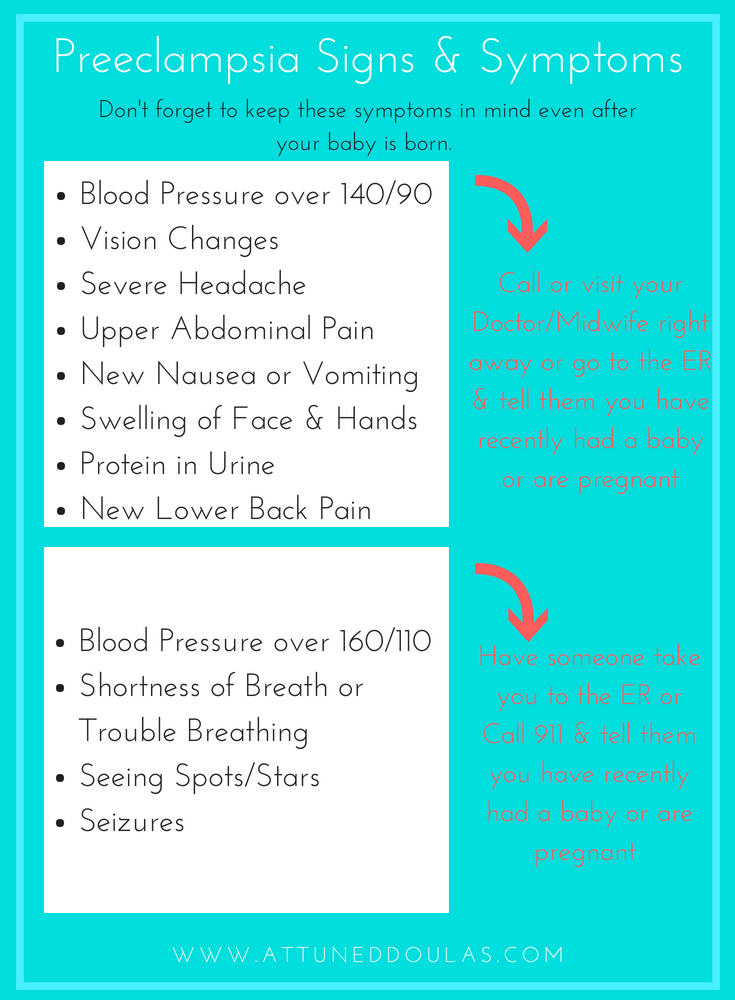Preeclampsia, formerly known as toxemia or pregnancy induced hypertension is seen in at least 5-8% of all pregnancies, according to the Preeclampsia Foundation. It is a pregnancy related syndrome that affects the liver, kidneys and red blood cells. During pregnancy, your doctor or midwife is checking for high blood pressure and testing for protein in your urine, to monitor for signs of preeclampsia. The risks of eclampsia are seizures, coma and death so prenatal screening can help your provider monitor things and form a treatment plan if necessary. It isn’t just high blood pressure and often requires medication and delivery of the baby for best outcomes. Your doctor might recommend bed rest and/or medication if they would like to wait until the baby is mature enough for birth.
A few misconceptions about preeclampsia are that it is linear, starting with mild symptoms and progressing to more severe symptoms and that birth of the baby is a “cure”. The very first symptoms for some women is seizures, so it’s key to remember that it might not start with higher blood pressure or just protein in the urine. Giving birth is also not the cure we often think it is, because preeclampsia and eclampsia can continue all the way to 6 weeks postpartum. In fact, up to 97% of maternal deaths stemming from preeclampsia happen after the baby is born, during the postpartum period.
Stay alert after your baby is born, even if you didn’t show signs or symptoms in pregnancy, be mindful of preeclampsia during the postpartum period. If you are in the hospital, be sure to let your doctor or nurse know right away if you develop any of these symptoms. We can’t stress enough how important it is during pregnancy to follow your gut or intuition. If something doesn’t feel right, you’re experiencing new symptoms, or you have questions, don’t hesitate to call your provider. Your doula will be ready to walk beside you through any choices you need to make or unexpected plans that come up with a preeclampsia diagnosis.

